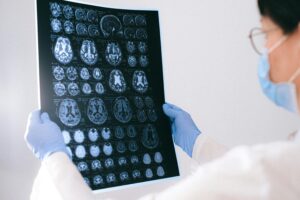
Alzheimer’s Disease (AD) is a progressive neurodegenerative disorder that affects memory, thinking, and behavior. It is the most common form of dementia, affecting millions of people worldwide. While there is currently no cure for Alzheimer’s, understanding the disease and exploring potential treatment options can provide hope and support for those affected.
Understanding Alzheimer’s Disease
- Symptoms: The early stages of Alzheimer’s are often characterized by memory loss, particularly difficulty remembering recent events. As the disease progresses, symptoms may include confusion, disorientation, mood swings, and changes in personality.
- Causes: The exact cause of Alzheimer’s is not fully understood, but research suggests that it is associated with the buildup of abnormal protein deposits in the brain.
- Diagnosis: A diagnosis of Alzheimer’s typically involves a thorough medical history, cognitive tests, and brain scans.
Prevention and Risk Factors
While there is no definitive way to prevent Alzheimer’s, certain lifestyle factors may reduce your risk. These include:
- Healthy Diet: A Mediterranean-style diet rich in fruits, vegetables, whole grains, and healthy fats may be beneficial.
- Regular Exercise: Physical activity can help reduce the risk of Alzheimer’s and improve overall health.
- Mental Stimulation: Engaging in mentally stimulating activities, such as reading, playing games, or learning a new language, may help protect against cognitive decline.
- Social Interaction: Maintaining social connections can have a positive impact on brain health.
Treatment Options
While there is no cure for Alzheimer’s, current treatments can help manage symptoms and improve quality of life. These may include:
- Medications: Certain medications can temporarily slow the progression of cognitive decline in some individuals.
- Therapy: Cognitive therapy and behavioral therapy can help individuals with Alzheimer’s cope with symptoms and maintain their independence for as long as possible.
- Supportive Care: Providing a safe and supportive environment is crucial for individuals with Alzheimer’s and their caregivers.
Emerging Treatments
Recent research has shown promising results for new treatments that target the underlying causes of Alzheimer’s. These include therapies that aim to reduce amyloid beta plaques and tau tangles in the brain.
Conclusion
Alzheimer’s Disease is a complex and challenging condition. However, by understanding the disease and exploring available treatment options, individuals and their caregivers can navigate this journey with greater knowledge and hope.
